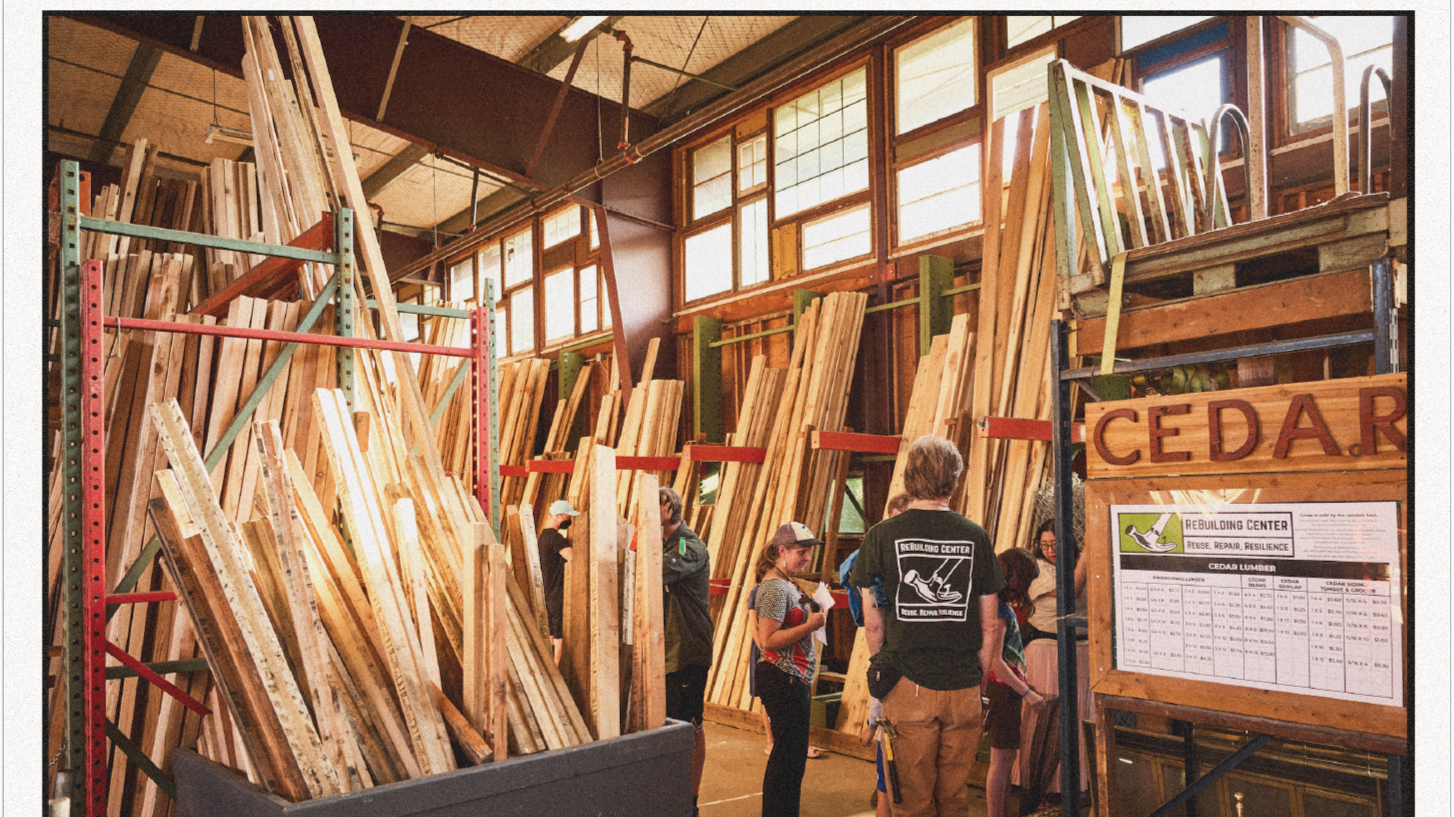Vintage bathtubs, copper door knobs, giant slabs of old-growth lumber. The ReBuilding Center is a veritable Aladdin’s cave of salvaged materials rescued from the wrecking crew.
From its humble origins as a sort of communal wood pile, the nonprofit has become a magnet for renegade artists, offbeat makers, and thrifty do-it-yourselfers who flock to its 30,000-square-foot warehouse in search of building materials with a history. Since its founding in 1997, the RBC has kept 60 million pounds of reclaimed treasures out of the landfill and saved Portlanders about $750,000 a year in building costs.
RBC founder Shane Endicott led the “gentle demo” movement, which encouraged builders and renovators to salvage and donate reclaimed materials instead of dumping them. The idea proved so successful that Portland adopted the nation’s first deconstruction ordinance in 2016. Instead of demolishing older buildings, contractors must now deconstruct them and salvage what they can.
The nonprofit has become a landmark for the Mississippi District, helping residents in the neighborhood reclaim and reuse. But about five years ago, the nonprofit broadened its mission. “The organization took a hard look at itself and asked, who are we prioritizing?” says executive director Jackie Kirouac-Fram. “We’ll always be there for artists and DIYers. But we asked, how can we help people at risk of displacement?”
The answer: empower them. RBC now offers classes in carpentry, plumbing, and electricity to 2,500 people every year. “Those skills keep folks in their homes,” says Kirouac-Fram, helping them save money fixing broken windows and leaky toilets.
One of the nonprofit’s biggest headaches is collecting salvage materials. Organizations like Goodwill and FreeGeek face a similar problem. “The city collects garbage, the city collects recycling, the city collects compost,” she says. “But it doesn’t collect reusable stuff.” Going forward, Kirouac-Fram envisions a citywide system to pick up clothes, bikes, computers, furniture, and salvage—an idea that dovetails perfectly with the city’s retread DNA. Count us in.
Next Story > 1999: The Lovejoy Columns
 Opens in new window
Opens in new window